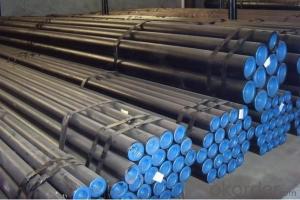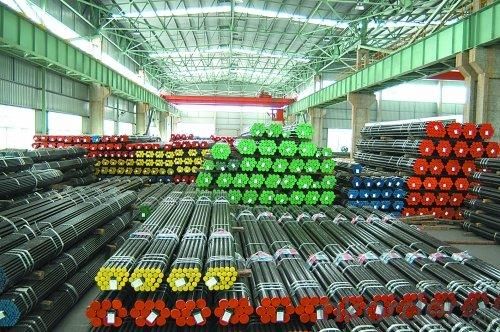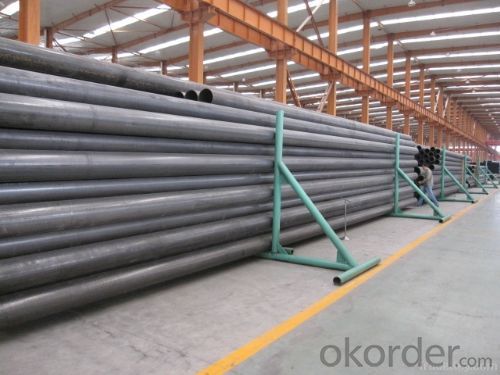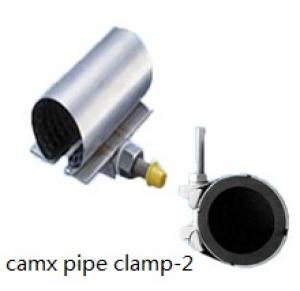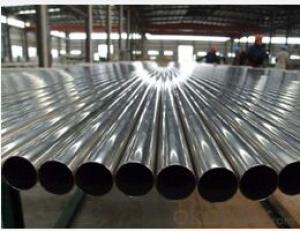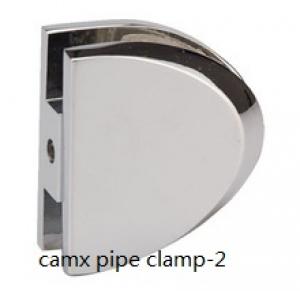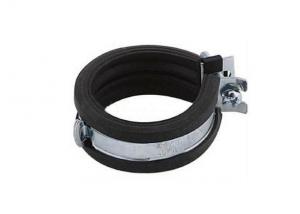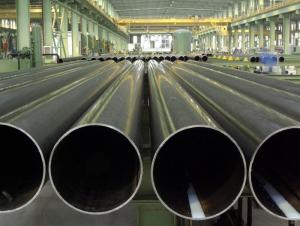Welded Steel Water Pipe Water Steel Pipe
- Loading Port:
- Tianjin
- Payment Terms:
- TT OR LC
- Min Order Qty:
- 25 m.t.
- Supply Capability:
- 6700 m.t./month
OKorder Service Pledge
OKorder Financial Service
You Might Also Like
1、Structure of Water Steel Pipe API SPEC 5CT:
water steel pipe is to be used for conveying gas, water, and petroleum foroil and natural gas industries. And used for structural steel pies purpose. As the manufacturing process does not include any welding, seamless pipes are perceived to be stronger and more reliable. Historically seamless pipe was regarded as withstanding pressure better than other types, and was often more easily available than welded pipe.
2、Main Features of Water Steel Pipe API SPEC 5CT:
• High manufacturing accuracy
• High strength
• Small inertia resistance
• Strong heat dissipation ability
• Good visual effect
• Reasonable price
3、Water Steel Pipe API SPEC 5CT: Specification:
Standard | GB, DIN, ASTM ASTM A106-2006, ASTM A53-2007 |
Grade | 10#-45#, 16Mn 10#, 20#, 45#, 16Mn |
Thickness | 8 - 33 mm |
Section Shape | Round |
Outer Diameter | 133 - 219 mm |
Place of Origin | Shandong, China (Mainland) |
Secondary Or Not | Non-secondary |
Application | Hydraulic Pipe |
Technique | Cold Drawn |
Certification | API |
Surface Treatment | factory state or painted black |
Special Pipe | API Pipe |
Alloy Or Not | Non-alloy |
Length | 5-12M |
Outer Diameter | 21.3-610mm |
Grade | 20#, 45#, Q345, API J55, API K55, API L80, API N80, API P110, A53B |
Standard | ASME, ASTM |
1) Material:20#(ASTM A 106/A53 GRB.API5LGRB,GB),45#,16Mn,10#.
2) Specification range:OD:21.3-610mm,WT:6-70mm,length:6-12m or according to the requirement of clients.
3) Excutive standards:GB,ASME API5L.ASTM A 106/A53,Despite of the above standards,we can also supply seamless steel pipe with standard of DIN,JIS,and so on,and also develop new products according to the requirements of our clients!
4) Surface:black lacquered,varnish coating or galvanized.
5) Ends:Beveled or square cut,plastic capped,painted.
6) Packing:bundles wrapped with strong steel strip,seaworthy packing.
4、Packaging & Delivery
Packaging Details: | seaworthy package,bundles wrapped with strong steel strip |
Delivery Detail: | 15-30days after received 30%TT |
5、FAQ of Water Steel Pipe API SPEC 5CT:
①How is the quality of your products?
Our products are manufactured strictly according to national and internaional standard, and we take a test
on every pipe before delivered out. If you want see our quality certifications and all kinds of testing report, please just ask us for it.
Guaranteed: If products’ quality don’t accord to discription as we give or the promise before you place order, we promise 100% refund.
②How about price?
Yes, we are factory and be able to give you lowest price below market one, and we have a policy that “ for saving time and absolutely honest business attitude, we quote as lowest as possible for any customer, and discount can be given according to quantity”,if you like bargain and factory price is not low enough as you think, just don’t waste your time.Please trust the quotation we would give you, it is professional one.
③Why should you chose us?
Chose happens because of quality, then price, We can give you both.Additionally, we can also offer professional products inquiry, products knowledge train(for agents), smooth goods delivery, exellent customer solution proposals.Our service formula: good quality+good price+good service=customer’s trust
SGS test is available, customer inspection before shipping is welcome, third party inspection is no problem.
6、 Water Steel Pipe API SPEC 5CT: Images:
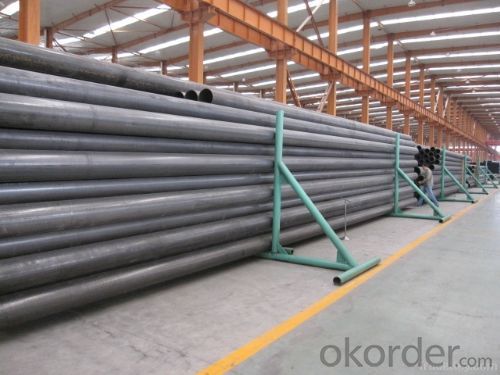
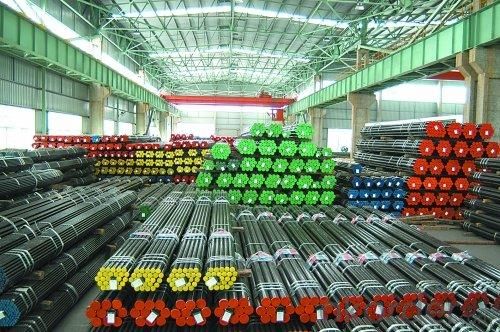
- Q: What type of steel pipe dance is used in general?
- According to international competition practice, the standard size of steel tube is 40 mm or 45 mm in diameter, and the 45mm is usually used. The height of the steel pipe is not less than 3.3 meters and not higher than 4 meters.
- Q: Can steel pipes be used for natural gas distribution?
- Yes, steel pipes can be used for natural gas distribution. Steel pipes are commonly used in the natural gas industry due to their strength, durability, and ability to withstand high pressure. They are capable of safely transporting natural gas over long distances and are often preferred for their resistance to corrosion and leaks.
- Q: What are the common protective coatings used on the inner surface of steel pipes?
- The common protective coatings used on the inner surface of steel pipes include epoxy, polyurethane, and cement mortar coatings. These coatings provide corrosion resistance, prevent the formation of scales, and improve the durability and lifespan of the pipes.
- Q: What is the difference between internal coating and external lining of steel pipes?
- The main difference between internal coating and external lining of steel pipes lies in their purpose and location. Internal coating refers to the application of protective materials on the inner surface of the steel pipe, primarily to prevent corrosion, improve flow efficiency, and maintain the quality of transported fluids. On the other hand, external lining involves applying protective materials to the outer surface of the steel pipe, mainly for corrosion resistance, insulation, and protection against external elements. Therefore, while internal coating focuses on the interior protection and performance of the pipe, external lining shields the pipe from environmental factors and external damage.
- Q: Can steel pipes be used for irrigation systems?
- Yes, steel pipes can be used for irrigation systems. They are strong, durable, and resistant to corrosion, making them suitable for transporting water and withstanding outdoor conditions. However, it is important to ensure proper insulation and maintenance to prevent any potential rust or degradation.
- Q: How are steel pipes used in the manufacturing of bridges?
- Steel pipes are commonly used in the manufacturing of bridges for various purposes, such as supporting heavy loads, providing structural strength, and ensuring durability. They are often used as piling foundations, allowing the bridge to be securely anchored to the ground. Steel pipes can also be used as bridge components, such as support columns, beams, and trusses, providing the necessary strength and stability to withstand the weight and forces exerted on the bridge. Additionally, steel pipes are used for drainage systems, allowing water to flow away from the bridge structure, preventing potential damage or erosion. Overall, steel pipes play a crucial role in the construction and structural integrity of bridges.
- Q: How are steel pipes used in the construction of coal-fired power plants?
- Steel pipes are used in the construction of coal-fired power plants for various purposes such as transporting coal and water, circulating fluids, and carrying high-pressure steam. They are commonly used in the boiler and piping systems, including the coal handling system, ash handling system, and cooling water system. Steel pipes provide durability, strength, and resistance to high temperatures and pressures, making them essential components in coal-fired power plant construction.
- Q: Is there any difference between HFW steel pipe and ERW steel pipe?
- Resistance welding, as the name suggests, resistance welding is a method of welding by welding electrode after exerting pressure on electrode and utilizing electric current through the contact surface of connector and adjacent zone. High frequency welding: high frequency current through the metal conductor, will produce two kinds of peculiar effects: skin and proximity effects, high frequency welding is the use of these two kinds of effects of steel pipe welding, the effects of the two is based on the high frequency welding metal.
- Q: How do steel pipes handle chemical substances?
- Steel pipes are highly resistant to chemical substances due to their high strength and corrosion-resistant properties. They can safely handle a wide range of chemical substances without undergoing any significant degradation or damage.
- Q: How are steel pipes connected in pipeline construction?
- Steel pipes are connected in pipeline construction through various methods, such as welding, threading, and flanges. Welding involves melting the ends of two pipes together to form a strong and permanent bond. Threading involves cutting grooves into the ends of pipes, which are then screwed together using threaded fittings. Flanges are used to connect pipes by bolting them together, creating a secure and leak-proof connection. These connection methods ensure the integrity and durability of the pipeline system.
Send your message to us
Welded Steel Water Pipe Water Steel Pipe
- Loading Port:
- Tianjin
- Payment Terms:
- TT OR LC
- Min Order Qty:
- 25 m.t.
- Supply Capability:
- 6700 m.t./month
OKorder Service Pledge
OKorder Financial Service
Similar products
Hot products
Hot Searches
Related keywords
